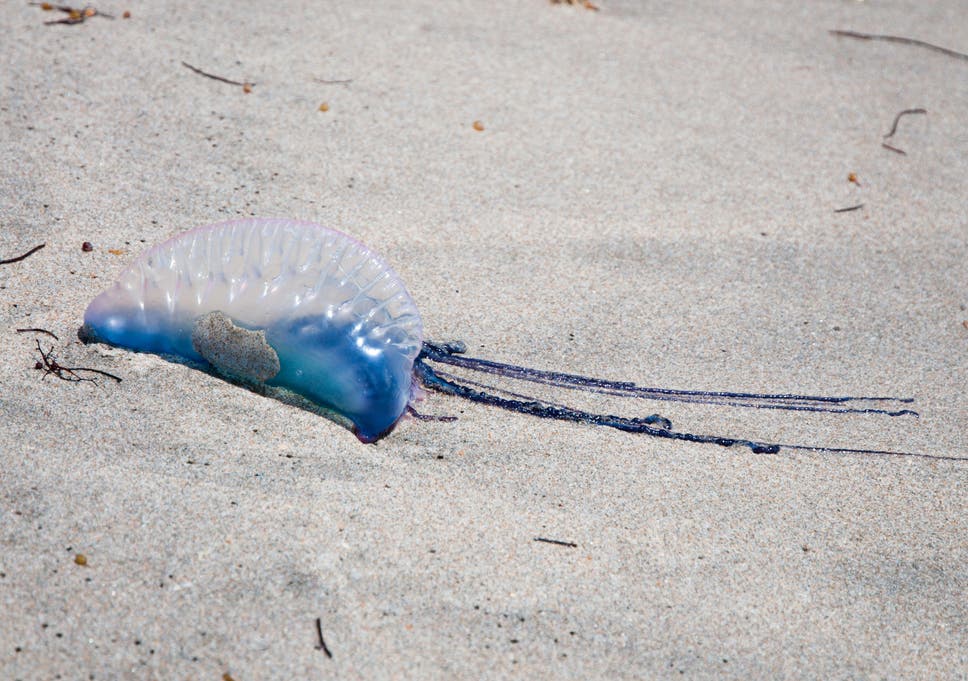
Bad things are happening in Cornwall. A plague of venomous Portuguese man-of-war creatures – often mistaken for jellyfish – are sprawling across beaches in unusual numbers, presenting a toxic hazard to local people and their pets.
The man-of-wars have been sighted on beaches all over the county, including at Penzance, Widemouth Bay near Bude and Praa Sands.
Portuguese man-of-war can vary greatly in size – particularly in the length of their poisonous tendrils which can reach 165 feet below the air filled sack which keeps the main body of the animal floating on or near the surface of the water.
These poisonous strands are used to paralyse and kill fish and other small animals. For humans a sting from a man-of-war is usually excruciatingly painful, but rarely deadly.
Local man, Simon Maycock posted a photograph of one he found near Penzance.
He said: “Portuguese man o’ war on the beach at Longrock, Cornwall this morning, looking like something out of ghostbusters.”
Anneka Dalyrmple posted photographs of a less elegant example she’d also seen on a beach, and said “the ones we saw definitely not looking like something out of ghostbusters.”
Phil McGrath said: “There were at least 20 on Praa Sands beach yesterday.”
Each of the highly venomous animals are made up of several organisms working together. They consist of four separate “polyps” – these include the balloon-like body, which can inflate and deflate in order to regulate the creature’s depth, the long poisonous tentacles, the digestive organs, and finally the reproductive organs.
They have no means of propulsion and are usually found drifting in warm oceans. They can sometimes be spotted in enormous groups of over a thousand individuals.
Reasons for ever-greater numbers of Portuguese man-of-war in UK waters include global climate change which has extended their range further north, and also the overfishing of species such as tuna and sailfish – the man-of-war’s natural predators.
According to popular mythology, using human urine is one way to lessen the pain from a sting, however recent research found urine actually aggravated the sting site and instead vinegar is recommended.







